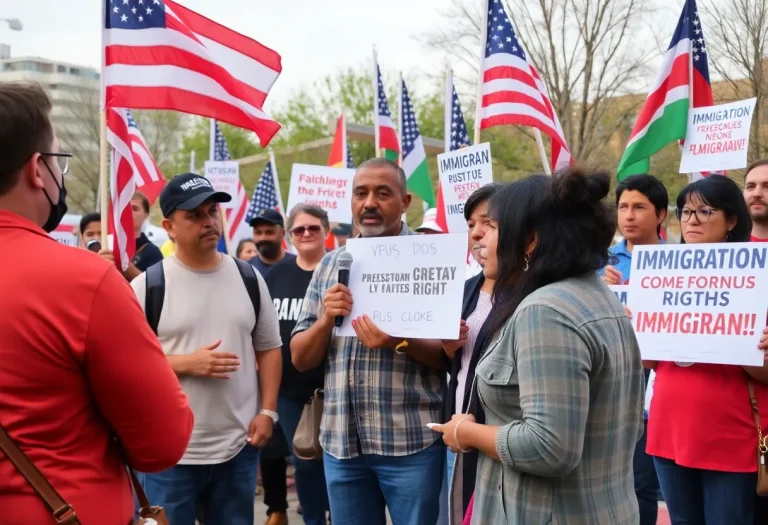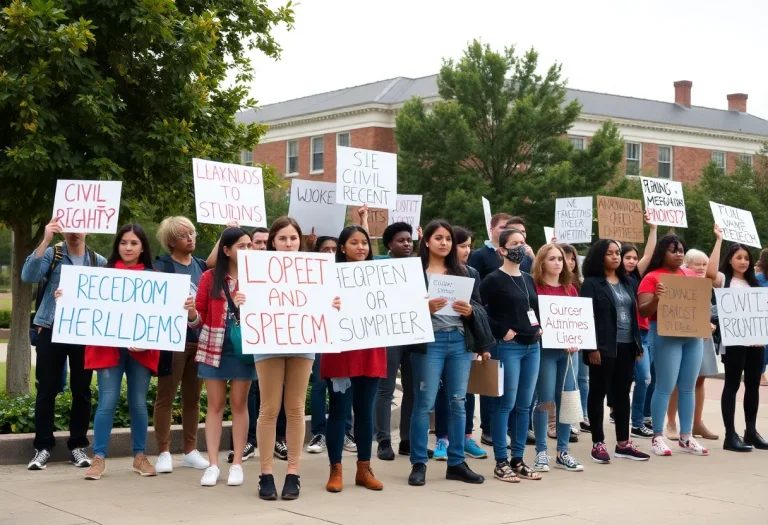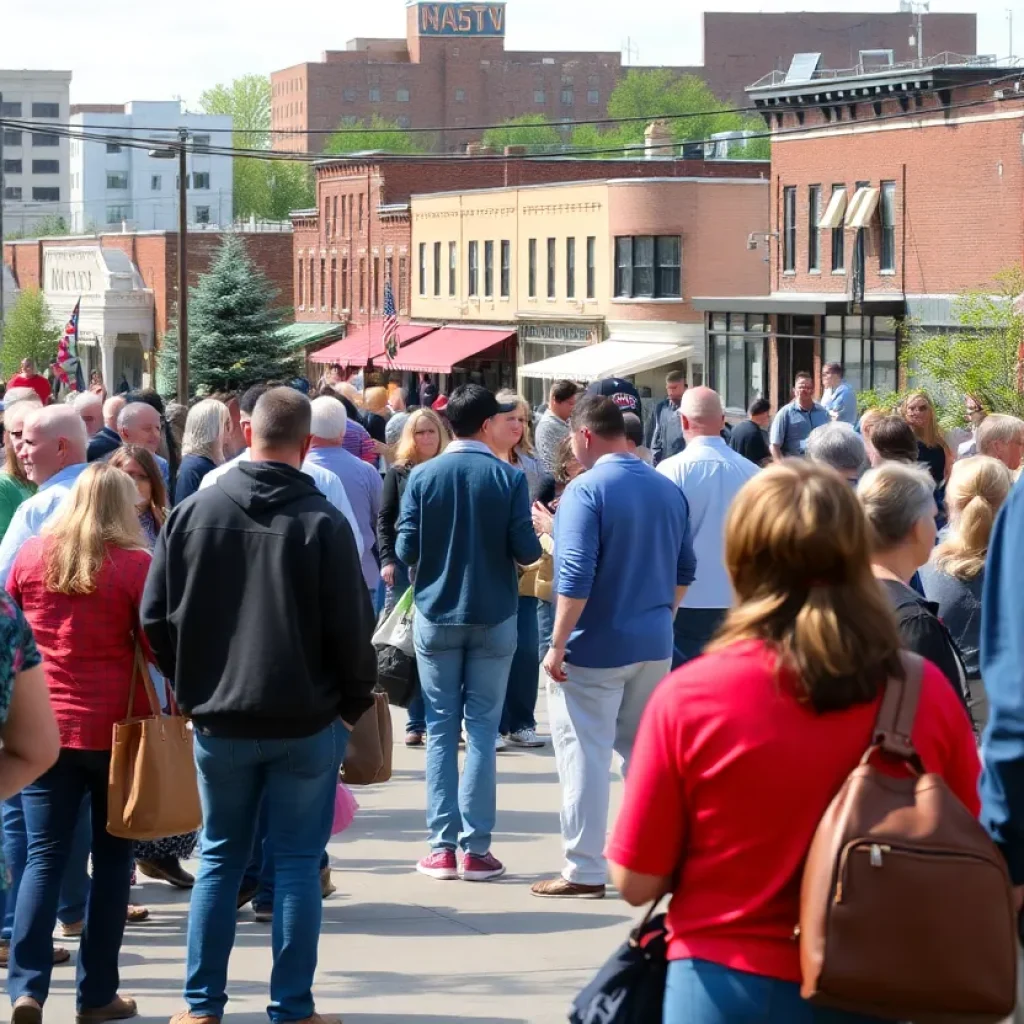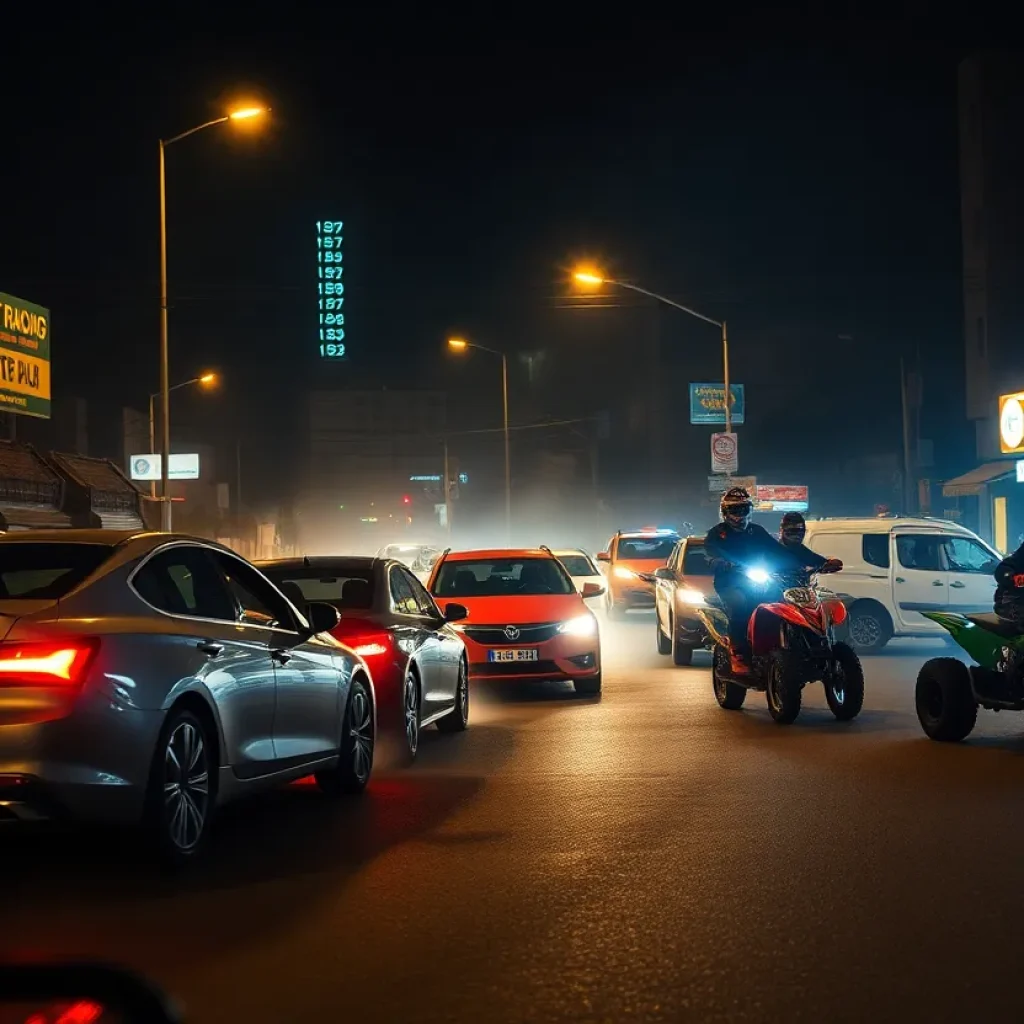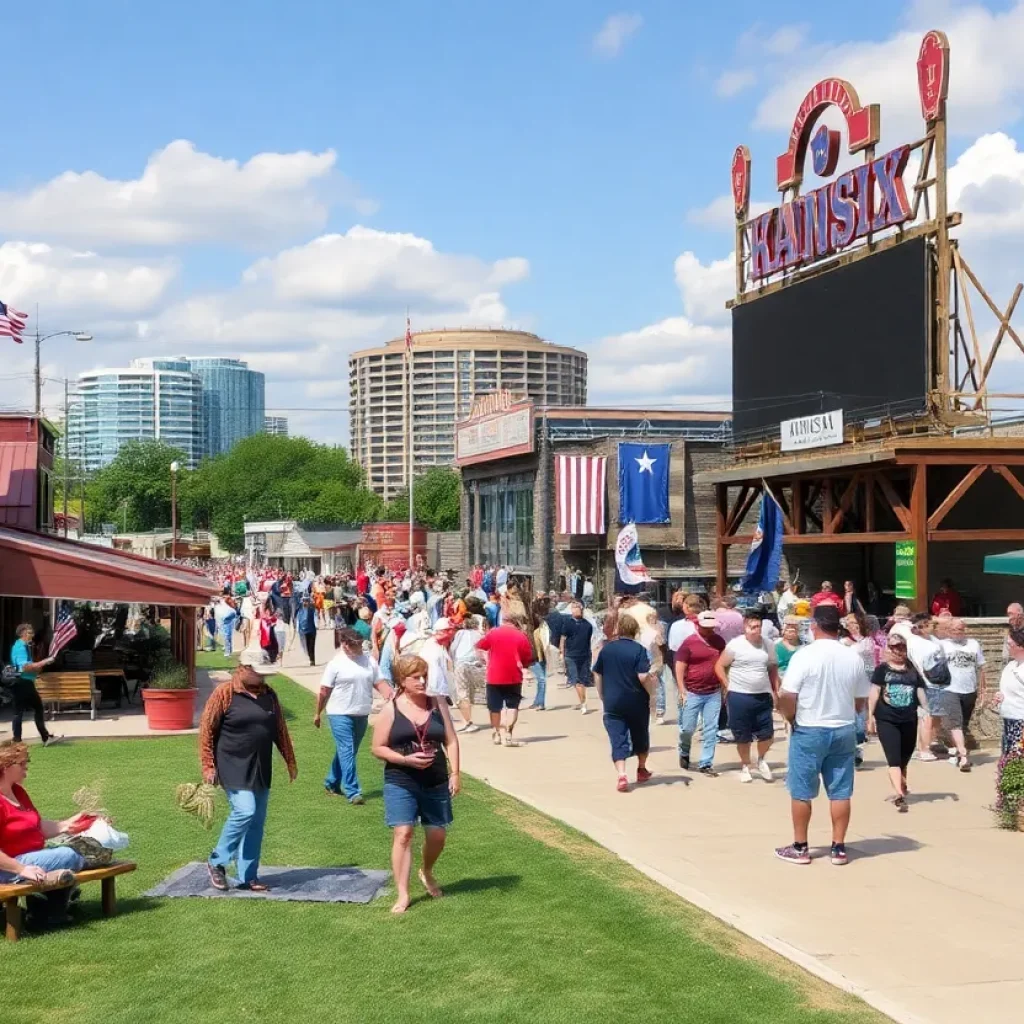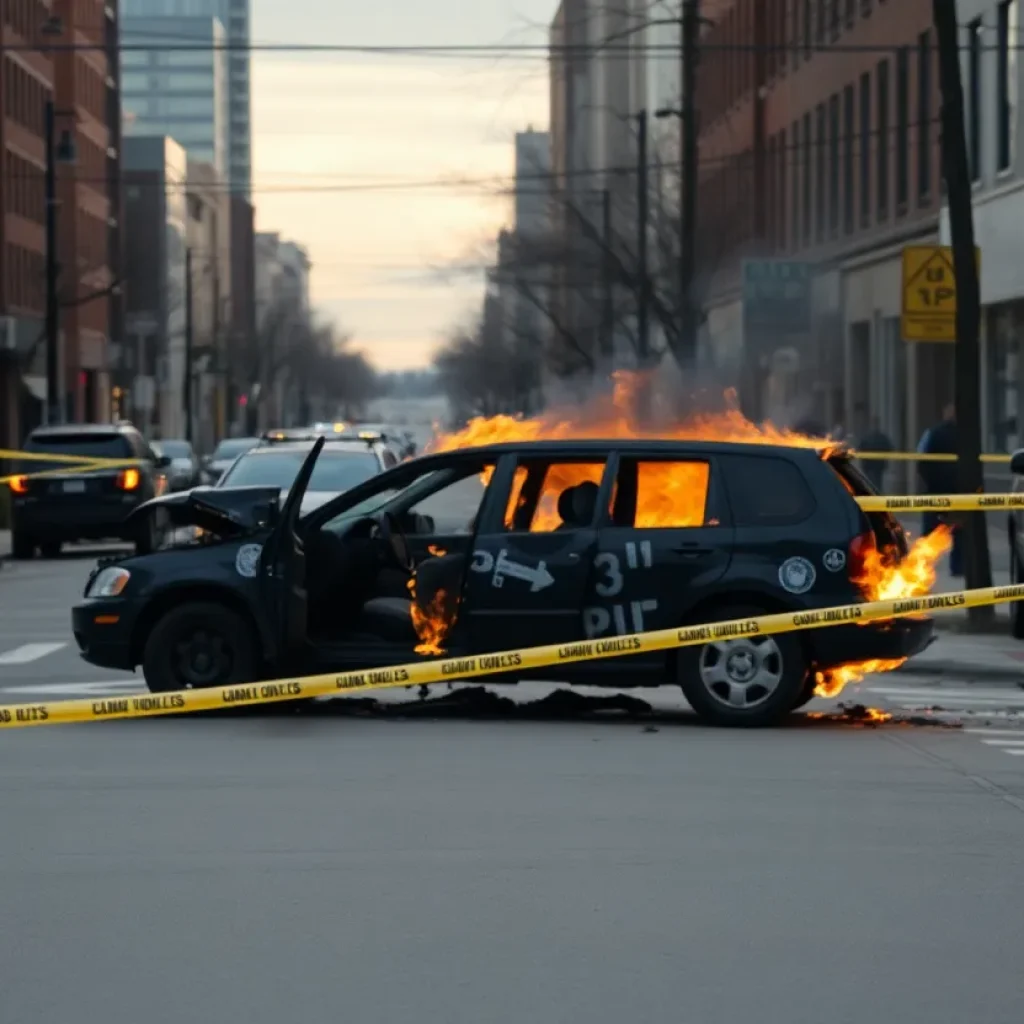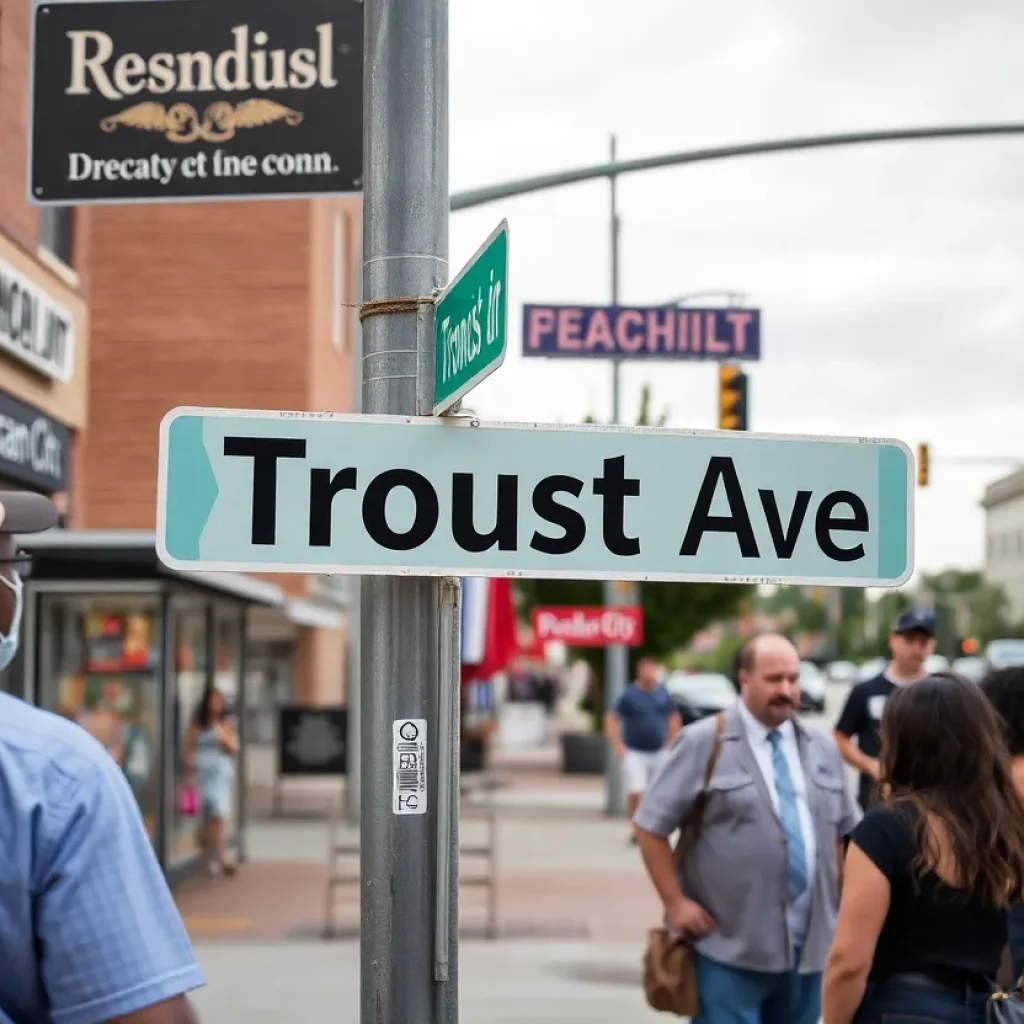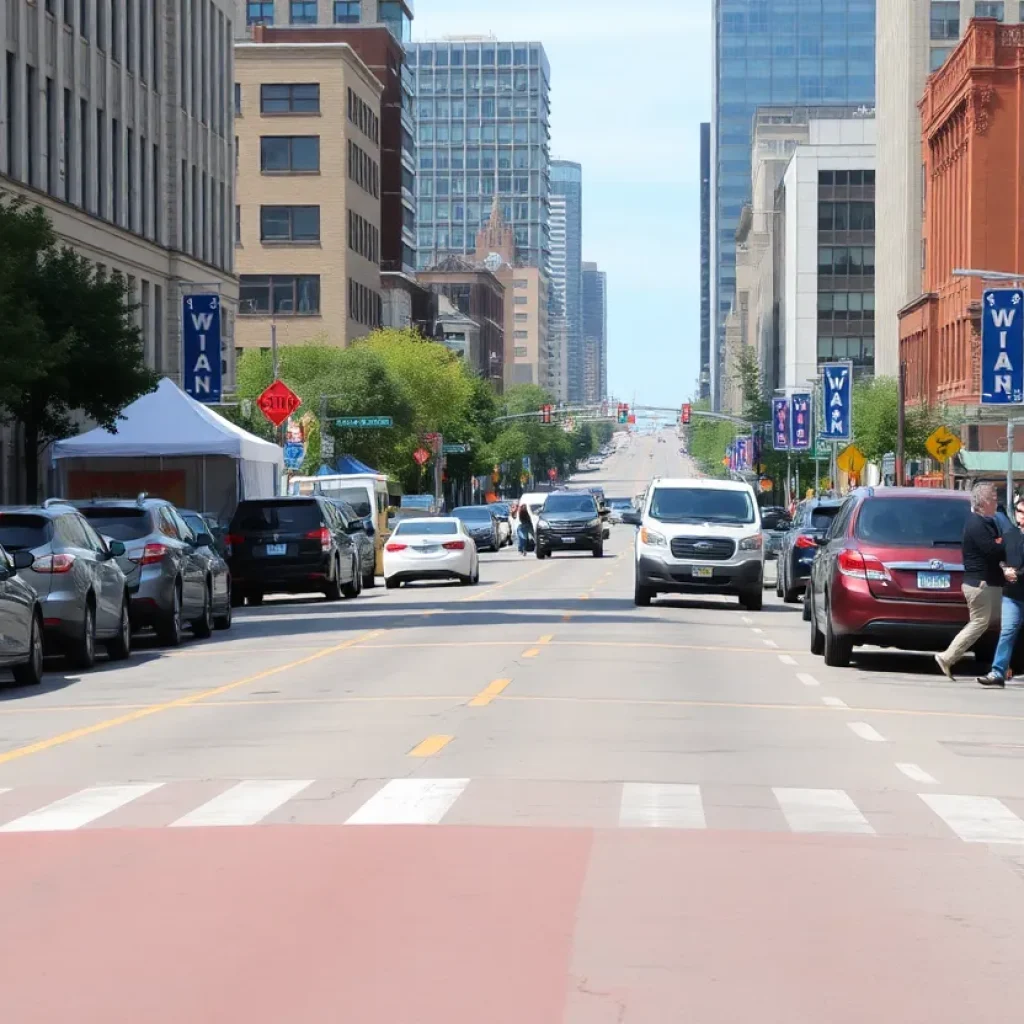Kansas City News
TOP kansas city STORIES
BREAKING NEWS
Jesse Smith Elected as New Mayor of North Kansas City
News Summary Jesse Smith has been elected as the new mayor of North Kansas City, winning by a narrow margin of 36 votes. The city, which has experienced a significant...
Red Sox Overpower Royals to Snap Winning Streak
News Summary The Boston Red Sox claimed a decisive 10-1 victory over the Kansas City Royals, ending the Royals’ seven-game winning streak. Garrett Crochet’s exceptional pitching allowed only one run...
Woman Pleads Guilty to $2.6 Million Fraud Scheme in Kansas City
News Summary Briauna Adams, a 28-year-old from Kansas City, has pleaded guilty to multiple federal charges relating to a scheme involving over $2.6 million in counterfeit checks and fraudulent loans....
Kansas City Ranks Third in Yelp’s Best BBQ Cities List
News Summary Kansas City has secured the third position in Yelp’s latest barbecue city rankings, celebrated for its rich barbecue culture and unique smoky flavors. The city stands out for...
Kansas City Crossroads Neighborhood Battles Illegal Street Racing Crisis
News Summary The Crossroads neighborhood in Kansas City is under siege from a rampant illegal street racing issue, causing concern among residents and business owners. Local leaders are seeking solutions...
Arkansas Man Arrested for School Burglaries in Missouri and Iowa
News Summary Curtis Lee Barton, a 40-year-old man from Arkansas, was arrested on suspicions of breaking into 16 schools across Missouri and Iowa. Law enforcement linked him to the crimes...
BUSINESS
Carter Broadcast Group Celebrates 75 Years of Impact
News Summary Carter Broadcast Group, the oldest Black-owned radio station in the U.S., commemorates its 75th anniversary this year. Founded in 1950, it has been a vital voice for the...
Olivette Community Development and Local Business Expansions
News Summary Olivette, Missouri is experiencing significant local developments, including the opening of a new section of the Centennial Greenway, expansions in restaurants, retail, and cannabis businesses, and a major...
Swade Cannabis Expands with Acquisition in Kansas City
News Summary Swade Cannabis, a St. Louis-based company, is acquiring five dispensaries in Kansas City, nearly doubling its retail presence in Missouri’s medical marijuana market. Currently owned by BesaMe Wellness,...
Evergy Reports Financial Results and Power Outages
News Summary Evergy, Inc. released its first-quarter financial results, reporting a net income of $125 million, which fell short of expectations. Meanwhile, thousands of customers faced power outages due to...
Kansas City Flower Shops Face Tariffs and Winter Storm Challenges
News Summary Kansas City flower shops are confronting difficulties from tariffs and winter storms as they prepare for Mother’s Day and Valentine’s Day. Local florists like Fiddly Fig Flowers prioritize...
Legislators Advocate for Angel Investor Tax Credit in Missouri
News Summary Missouri lawmakers are pushing for the introduction of an angel investor tax credit to boost early-stage business growth. Advocates argue this measure will support local startups and investment,...
Evergy Reports First Quarter Earnings Growth
News Summary Evergy, Inc. announced its first quarter earnings for 2025, reporting $125 million in profit, slightly up from the previous year. Despite challenges such as lower customer demand due...
EPR Properties Reports Strong Financial Results in Kansas City
News Summary EPR Properties, the Kansas City-based real estate investment trust, announced strong financial results for the first quarter, with an FFO of $92.9 million exceeding analyst expectations. While net...
Uncertainty Surrounds Future of Temple Slug After Recent Deaths
News Summary The future of Temple Slug, a unique Kansas City retail shop specializing in alternative home décor, is in question after the deaths of its founder Bob Gamer and...
Events/What's Happening
USPOULTRY Announces Educational Programs for Poultry Industry
News Summary The U.S. Poultry & Egg Association (USPOULTRY) has unveiled a comprehensive schedule for educational seminars and conferences aimed at improving the poultry and egg industry. With events planned...
Kansas City Prepares for Economic Boost from FIFA World Cup
News Summary Kansas City is set to host the 2026 FIFA World Cup, which is expected to generate significant economic opportunities. Community leaders are discussing ways to leverage this global...
Kansas City Commemorates Juneteenth with Month-Long Celebrations
News Summary Kansas City is set to honor Juneteenth with a series of month-long events celebrating Black culture and heritage. Key highlights include the Miss Juneteenth Pageant, Juneteenth First Fridays,...
Kansas City Weekend Events Celebrate Cinco de Mayo and Derby
News Summary Kansas City is set for a vibrant weekend packed with celebrations, highlighting both Cinco de Mayo and the Kentucky Derby. From cultural festivities to unique food events, the...
Kansas City Hosts 21st Celebration at the Station
News Summary Kansas City will celebrate its 21st ‘Celebration at the Station’ event on May 28, a free, family-friendly gathering featuring live music, food trucks, and a stunning fireworks show....
Kansas City Welcomes Back First Friday Events
News Summary Kansas City celebrated the return of its First Friday events on April 5, 2025, despite rainy weather. This beloved tradition supports local artists and galleries, drawing tens of...
Kansas City Unveils Vibrant Outdoor Drinking Spots for Summer
News Summary This summer, Kansas City is bustling with new outdoor drinking venues, offering everything from rooftop bars to patio lounges perfect for seasonal cocktails. Highlights include the Percheron Rooftop...
Weekend Events in Kansas City: May 1-4
News Summary Kansas City is set for an exciting weekend from May 1-4, featuring outdoor concerts, rodeos, art festivals, and cultural celebrations. Highlights include the Mobile Music Box Concert, the...
Kansas City Welcomes WWE Fans for Monday Night Raw
News Summary WWE fans packed the T-Mobile Center in Kansas City on April 28 for an unforgettable episode of Monday Night Raw, showcasing their enthusiasm with shirts, replica belts, and...
CRIME
Arkansas Man Arrested for School Burglaries in Missouri and Iowa
News Summary Curtis Lee Barton, a 40-year-old man from Arkansas, was arrested on suspicions of breaking into 16 schools across Missouri and Iowa. Law enforcement linked him to the crimes...
Charges Filed Against Metro Tow Operator for Theft and Forgery
News Summary Lannette Adamson, a towing company operator in Kansas City, faces felony theft and forgery charges linked to her business practices at Metro Tow. Allegations include stealing vehicles and...
Surge in Domestic Violence Homicides Plagues Kansas City
News Summary Kansas City is grappling with a disturbing rise in domestic violence homicides, reporting 12 cases in the first four months of 2025—matching the total for all of 2024....
Kansas City Man Sentenced to Life for Double Murder
News Summary Earl Dunn III, a 21-year-old from Kansas City, has been sentenced to life in prison without parole for the March 2021 double homicide. Convicted of murdering two individuals,...
18-Year-Old Charged with Murder Following Liquor Store Shooting
News Summary Jeremiah Williamson, an 18-year-old man, faces charges of second-degree murder, first-degree attempted robbery, and armed criminal action after a fatal shooting incident at Liquor Xpress in Kansas City....
Kansas City Man Charged with 2nd Degree Murder in Hit and Run
News Summary Anthony Milligan, a 55-year-old Kansas City man, has been charged with 2nd Degree Murder and Armed Criminal Action following a deliberate hit and run incident that resulted in...
POLITICS
Jesse Smith Elected as New Mayor of North Kansas City
News Summary Jesse Smith has been elected as the new mayor of North Kansas City, winning by a narrow margin of 36 votes. The city, which has experienced a significant...
Woman Pleads Guilty to $2.6 Million Fraud Scheme in Kansas City
News Summary Briauna Adams, a 28-year-old from Kansas City, has pleaded guilty to multiple federal charges relating to a scheme involving over $2.6 million in counterfeit checks and fraudulent loans....
Kansas City Crossroads Neighborhood Battles Illegal Street Racing Crisis
News Summary The Crossroads neighborhood in Kansas City is under siege from a rampant illegal street racing issue, causing concern among residents and business owners. Local leaders are seeking solutions...
Arkansas Man Arrested for School Burglaries in Missouri and Iowa
News Summary Curtis Lee Barton, a 40-year-old man from Arkansas, was arrested on suspicions of breaking into 16 schools across Missouri and Iowa. Law enforcement linked him to the crimes...
Kansas City Council Postpones Troost Avenue Renaming
News Summary The Kansas City City Council has postponed the proposal to rename Troost Avenue to Truth Avenue, citing a lack of support. Community leaders advocate for the change, citing...
Kansas City Royals Stadium Discussions Heat Up
News Summary The Kansas City Royals are actively exploring new stadium locations, with Missouri lawmakers considering private funding. Fan surveys indicate a preference for downtown, but economic uncertainty complicates funding...
Kansas City Faces Surge in Dangerous Sideshow Activities
News Summary Kansas City is grappling with an alarming increase in dangerous sideshow activities disrupting local streets, especially in the Crossroads area. These chaotic incidents, often seen during events like...
Charges Filed Against Metro Tow Operator for Theft and Forgery
News Summary Lannette Adamson, a towing company operator in Kansas City, faces felony theft and forgery charges linked to her business practices at Metro Tow. Allegations include stealing vehicles and...
Melesa Johnson Elected as First African American Prosecutor in Jackson County
News Summary Melesa Johnson has made history as the first African American prosecutor of Jackson County, Missouri, winning approximately 57% of the vote against her Republican opponent. Johnson’s campaign emphasized...
SPORTS
Kansas City Prepares for Economic Boost from FIFA World Cup
News Summary Kansas City is set to host the 2026 FIFA World Cup, which is expected to generate significant economic opportunities. Community leaders are discussing ways to leverage this global...
Kansas City Welcomes WWE Fans for Monday Night Raw
News Summary WWE fans packed the T-Mobile Center in Kansas City on April 28 for an unforgettable episode of Monday Night Raw, showcasing their enthusiasm with shirts, replica belts, and...
Kansas City Celebrates Tech N9ne’s Sonic ID for World Cup
News Summary Kansas City is buzzing with excitement as local artist Tech N9ne has been selected to create the city’s Sonic ID for the FIFA World Cup 2026. This unprecedented...
Action-Packed Weekend Ahead in Kansas City!
News Summary This weekend in Kansas City features a diverse lineup of events including concerts by Paul Simon and Five for Fighting, Kansas City Royals baseball games, charity workouts, family...
Kansas City Unveils the Roy Blunt Luminary Park
News Summary Kansas City has officially named its South Loop Project the Roy Blunt Luminary Park, honoring the former U.S. Senator. The park will transform Interstate 670 into a vibrant...
Kansas City Royals Gear Up for Opening Day Promotions
News Summary The Kansas City Royals are set to launch their exciting 2025 season with a special promotion at Kauffman Stadium on April 5, 2025. The first 10,000 attendees will...
Fun-Filled Weekend Events in Kansas City: April 4-6, 2025
News Summary Kansas City is gearing up for an exciting weekend from April 4 to 6, 2025, featuring a variety of activities suitable for all interests. Highlights include the return...
Weekend Events in Kansas City: April 3–6
News Summary Kansas City has a vibrant lineup of events this weekend, from theater performances like ‘Back to the Future: The Musical’ to jazz concerts and cultural festivals. With family-friendly...
Events Happening in Kansas City This Weekend: March 28-30, 2025
News Summary From art exhibits to thrilling sports events, Kansas City offers an exciting weekend from March 28-30, 2025. Highlights include the Orchid Delirium exhibit, Kansas City FilmFest, Royals baseball...



